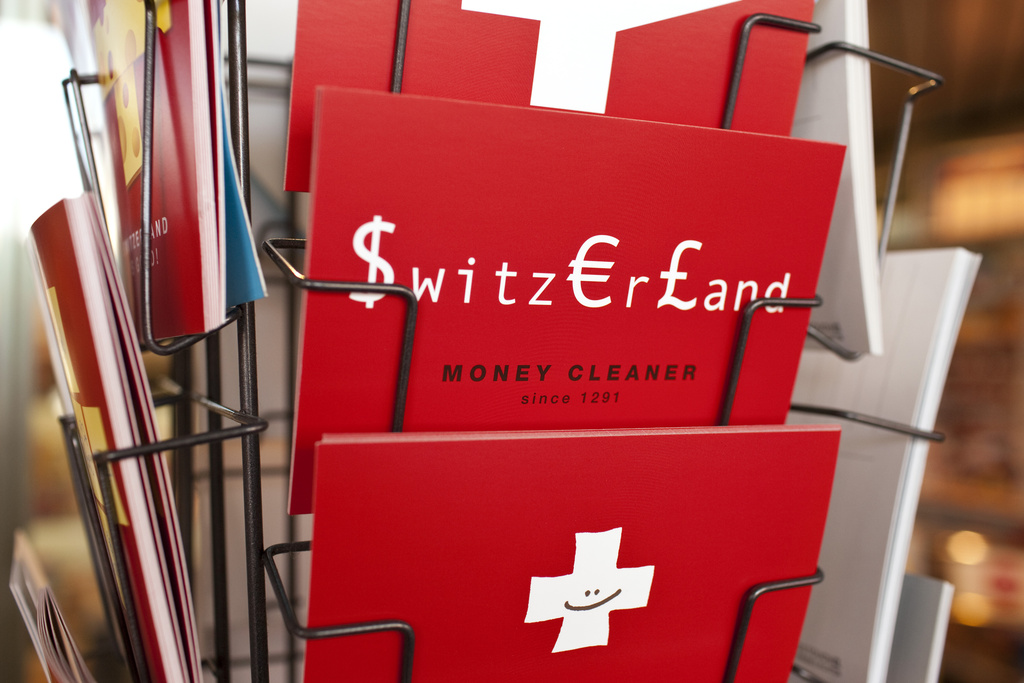Sensitive Swiss bank data handed to US

The Swiss finance ministry has confirmed that encrypted data relating to Swiss banks’ clients in the United States has been transmitted to the US tax authorities.
However, the ministry denied reports that millions of client emails were involved, putting the scale of the transfer at some 20,000 pages “on the US business of the banks”.
Full access to the information, with names of client advisors, will only be provided on a case-by-case basis or when a tax agreement is in place between the two countries, the ministry said.
In December it was revealed that 11 Swiss banks had been given an ultimatum to hand over thousands of client names and pay billions in fines to avoid tax evasion prosecution in the US.
The banks were under pressure to provide all correspondence with offshore clients over the past 11 years – with deadlines set for the end of December 2011 and the end of January 2012.
According to public radio, some of the banks in question were very close to caving in and delivering the data directly – until the Swiss government intervened and persuaded them to encrypt the data for the time being.
Concessions
The radio reported on Tuesday that Swiss Finance Minister Eveline Widmer-Schlumpf informed a parliamentary economics committee that Credit Suisse and seven other Swiss banks wanted to make concessions to Washington by offering information about client relations.
Switzerland is in the process of negotiating a tax agreement with the US to address the problem of US tax evaders hiding money in Switzerland. The negotiations have stalled because the US, which wants a fine in the billions, is demanding to see more bank client data.
The Department of Justice (DoJ) has been steadily closing a net around Swiss banks ever since UBS admitted in 2009 to helping wealthy US citizens evade taxes. The Swiss authorities were then compelled to water down banking secrecy laws by handing over the names of nearly 4,500 UBS clients.
Since then, the DoJ and the US tax authority – the Internal Revenue Service (IRS) – have been building cases against other Swiss banks that are alleged to have either opened secret accounts from scratch or poached UBS clients who wanted to dodge the crackdown.
High price
Last week saw the shock announcement of the sale of Switzerland’s oldest private bank, one of those being targeted by the US campaign.
Wegelin & Co is the first standalone Swiss bank to sell its operations in Switzerland as a result of tax evasion pressure from the US.
US authorities charged three Wegelin staff on January 3 with conspiring to hide more than $1.2 billion (SFr1.1 billion) in client assets from tax officials. Wegelin said at the time it was prepared for the “expected quarrel” and the bank had not broken any Swiss laws.
However, speaking to reporters on Friday, Wegelin senior managing partner Konrad Hummler said the sale had resulted from “the extraordinarily difficult situation and threat to the bank brought about by the legal dispute with the US”.
Short-sighted
Picking up UBS clients seeking a safer home for their funds turned out to be a short-sighted strategy, according to Swiss economics professor Peter V. Kunz.
“After the US authorities homed in on UBS, they obviously assumed that all Swiss banks realised that US clients represented a risk. I just cannot understand how Swiss banks took on such US clients or potentially sought them out. These banks really created a problem for themselves.”
The latest Swiss move of offering key data as bait is intended to increase the pressure on the US side. In return, all charges pending against Swiss banks are supposed to be dropped.
The US has not responded to the development and many are hoping for a breakthrough. Just last week in Davos, Widmer-Schlumpf said after meeting US Treasury Secretary Timothy Geithner that a deal to end the tax evasion row with the US could come later this year.
However, some observers question the wisdom of the lure tactic, pointing to the risk that it might be seen as provocative.
Kunz told swissinfo.ch that Switzerland was mistaken to believe that a global solution was in the offing.
“The American side is absolutely not interested in such a solution, because it would give them less opportunity to exert pressure, make examples [of banks] and impose fines. I assume the US will only come forward to make a deal when the lemon has been squeezed dry.”
Banking secrecy was enshrined in Swiss law in 1934.
France and Germany launched an attack on Switzerland in October 2008 for allegedly helping foreign tax evaders hide their assets.
The country has been under continuous attack over the issue ever since CDs of stolen bank data were sold to various European countries.
The OECD placed Switzerland on a “grey list” of uncooperative tax havens in April 2009. The Swiss were removed in September after renegotiating several double taxation treaties, but have refused to automatically transfer tax information.
The most damaging tax evasion case against Switzerland involved the activities of UBS bank in the US. In February 2009, UBS was fined $780 million after admitting helping US citizens dodge taxes.
In September 2010, the Swiss government agreed to transfer the details of 4,450 UBS clients to the US – in effect violating Swiss banking secrecy to prevent a ruinous court case for UBS.
Switzerland agreed to ground-breaking withholding tax deals with Germany in August and Britain in October that preserve banking secrecy. But the EC has threatened to take Britain and Germany to court if they implement these deals.
The EC insists on an automatic exchange of information as the basis of tax deals with Switzerland.
French President Nicolas Sarkozy referred to Switzerland as a tax haven in November and vowed that the powerful G20 nations would name and shame tax havens.
(With input from Renat Kuenzi)

In compliance with the JTI standards
More: SWI swissinfo.ch certified by the Journalism Trust Initiative







You can find an overview of ongoing debates with our journalists here. Please join us!
If you want to start a conversation about a topic raised in this article or want to report factual errors, email us at english@swissinfo.ch.